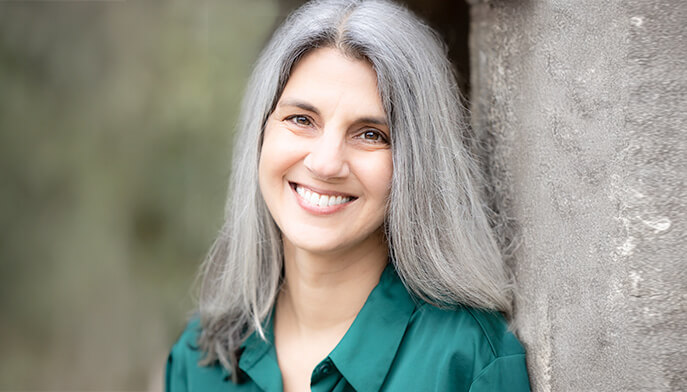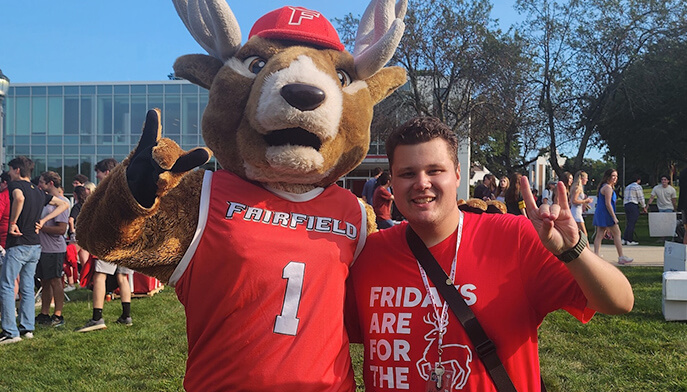Explore how pursuing an MFA can improve your creative writing skills, expand your network, and open doors to opportunities in creative writing.
Wondering if a master of fine arts (MFA) in creative writing is worth it? For many aspiring authors, editors, and storytellers, the answer is yes. An MFA program provides dedicated time to improve your creative writing skills, access to expert faculty mentoring, and opportunities to publish, network, and explore different types of creative writing. Beyond honing your craft, the creative writing benefits of an MFA program include professional advancement, deeper creative expression, and long-term connections in the writing community and publishing industry.
Developing Your Craft: Why an MFA Matters
One of the greatest benefits of pursuing a degree in creative writing is the opportunity to fully immerse yourself in your craft. These programs give you structured, protected time to focus on writing—something many aspiring authors struggle to find while juggling work and personal obligations.
Dedicated Time to Write
An MFA gives you the chance to refine your creative writing skills through intensive writing workshops, genre-specific courses, and personalized feedback from experienced faculty members. These workshops help you analyze your work from different perspectives and strengthen your storytelling techniques.
Strengthening Your Voice
An MFA in creative writing gives you access to curated creative writing courses and creative writing workshops designed to sharpen your storytelling techniques. By analyzing peers’ work and revising your own, you’ll learn to identify your strengths, address weaknesses, and develop a more distinctive authorial voice.
Exposure to Multiple Genres
Many MFA students explore types of creative writing they’ve never tried before, which can unlock new perspectives and creative directions. For example, a fiction-focused writer might discover a passion for literary nonfiction, or a poet might experiment with hybrid forms like literary journalism. Keeping an open mind about the skills you want to work on can help you broaden your experience.
The Role of Faculty and Mentorship
A defining feature of the best MFA in creative writing programs is access to experienced faculty members who are also accomplished authors, editors, and thought leaders. These mentors provide personalized feedback, guide your development, and help you navigate the realities of life as a writer.
Faculty Mentoring and Support
Through one-on-one faculty mentoring sessions, you’ll receive individualized advice on improving your writing skills, setting achievable goals, and developing strategies for publication. These mentorship opportunities are a hallmark of high-quality MFA programs and provide professional insights you won’t find in typical undergraduate courses.
A Community of Writers
Beyond faculty guidance, an MFA program connects you with peers who are equally passionate about the written word. This supportive writing community fosters collaboration, critical discussions, and lifelong creative partnerships. Over time, these connections become an invaluable part of your growth as a creative writer.
Professional Opportunities in Creative Writing
For many students, one of the top motivations for pursuing an MFA is access to diverse opportunities in creative writing. An MFA degree equips you with practical skills and industry knowledge that can lead to a wide range of careers.
Publishing and Editing
An MFA in creative writing provides insight into the publishing industry, helping you understand how manuscripts move from idea to bookshelf. You’ll also learn about working with literary magazines, submitting your work, and collaborating with editors.
Freelance and Professional Writing
Graduates often pursue careers as freelance writers, content strategists, and journalists. With advanced communication skills and polished storytelling abilities, MFA students gain a competitive edge in industries that value clear, compelling narratives.
Teaching and Higher Education
Because the MFA degree is considered a terminal degree in the field, it qualifies graduates to teach creative writing at the college or university level. For those passionate about mentoring the next generation of writers, this can be a rewarding career path within higher education.
Personal Growth and Creative Exploration
While many people focus on the career-driven creative writing benefits of an MFA program, the personal rewards are equally valuable.
Discovering Your Voice
An MFA program provides a safe, supportive space to explore your identity as a creative writer. Through guided projects and creative writing exercises, you’ll gain confidence and clarity in expressing your ideas and perspective.
Expanding Your Creative Boundaries
From experimenting with new forms to tackling challenging writing prompts, MFA students are encouraged to take creative risks. These programs foster a deeper connection to your craft, allowing you to dedicate time and energy to projects that inspire you.
A Lifelong Commitment to Writing
The habits you develop during your creative writing courses—daily writing, thoughtful revision, and collaboration—become part of your long-term identity as an author.
Networking and Long-Term Benefits
Another reason many writers choose to pursue an MFA is the ability to build meaningful connections within the writing world.
Alumni and Professional Networks
The best creative writing MFA programs often maintain active alumni networks that connect graduates with agents, editors, and publishing professionals. These relationships can lead to future collaborations and career opportunities. Fairfield also hosts the Inspired Writers Series, which serves as a companion to the MFA in creative writing, offering discussions with top authors.
Writing Communities and Industry Access
Participation in writing workshops, conferences, and creative writing courses often opens doors to professional development opportunities, giving you access to insider knowledge and potential collaborations.
Staying Relevant in the Field
By engaging with peers, faculty mentoring, and alumni, you’ll remain connected to evolving trends in storytelling, technology, and the publishing industry, ensuring your skills stay competitive over time.
Is an MFA Right for You?
Deciding whether to pursue an MFA ultimately depends on your goals as a creative writer. If you’re seeking structured guidance, mentorship from accomplished authors, and access to opportunities in creative writing that go beyond what traditional degrees offer, an MFA program may be the right choice.
An MFA in creative writing isn’t just about obtaining a credential—it’s an investment in yourself, your craft, and your future. Whether you want to publish your first book, launch a freelance career, or teach in higher education, the creative writing benefits are both personal and professional.
Turning Your Creative Dreams into Reality
A master of fine arts in creative writing offers a rare opportunity to focus on what matters most: your growth as a writer. With access to dedicated writing workshops, experienced faculty mentoring, and a vibrant writing community, you can improve your writing, gain essential communication skills, and position yourself for success in the publishing industry and beyond.
If you’re ready to explore your potential and connect with like-minded MFA students and professionals, now is the time to start researching the best MFA in creative writing programs for your goals. With passion, dedication, and the right MFA program, you can turn your creative ambitions into reality.




